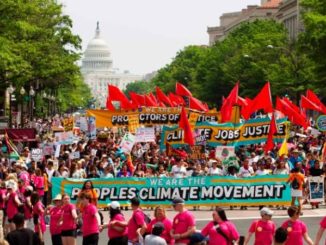
Fighting Climate Change in the Age of Trump
Small measures are no longer enough, as the consequences of an increasingly unstable climate wreak havoc on communities around the world.

Small measures are no longer enough, as the consequences of an increasingly unstable climate wreak havoc on communities around the world.
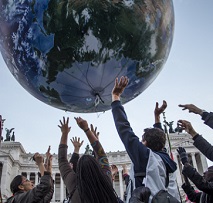
It has become a predictable pattern at the annual UN climate conferences for participants to describe the outcome in widely divergent ways. This was first apparent after the high-profile Copenhagen conference in 2009, when a four-page non-agreement was praised by diplomats, but denounced by well-known critics as a “sham,” a “farce,” and a mere face-saver.
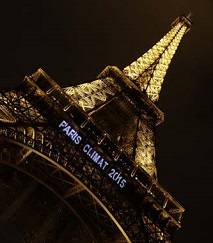
From the end of this month through early December, much of the world’s attention will be focused on Paris, the site of the upcoming round of UN climate negotiations. This is the twenty-first time diplomats and heads of state will gather under the umbrella of the UN’s Framework Convention on Climate Change.
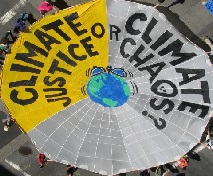
Today it often feels as though we are hopelessly mired in apocalyptic thinking, both in our social movements and in popular culture. From Hollywood blockbusters to art house dystopias, and from hip-hop lyrics to “serious” literature, images of irreversible climate chaos, interminable warfare, and total societal collapse seem increasingly inescapable.
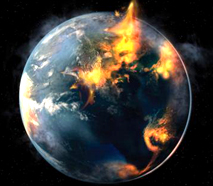
The year 2012 didn’t bring us the end of the world, nor the end of capitalism and Coca-Cola that Evo Morales promised last summer. But whatever new political developments the coming years may or may not bring upon us, it’s clear that we haven’t seen the end of the apocalyptic outlook that 2012 came to represent.
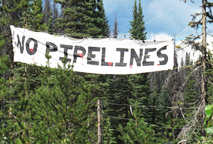
March 5th was Town Meeting Day in Vermont and, following a long tradition of our towns taking a stand on issues of wider importance, at least 29 towns, including Montpelier and Burlington, overwhelmingly passed resolutions opposing the proposed transport of tar sands oil through our region.
Copyright Toward Freedom 2019